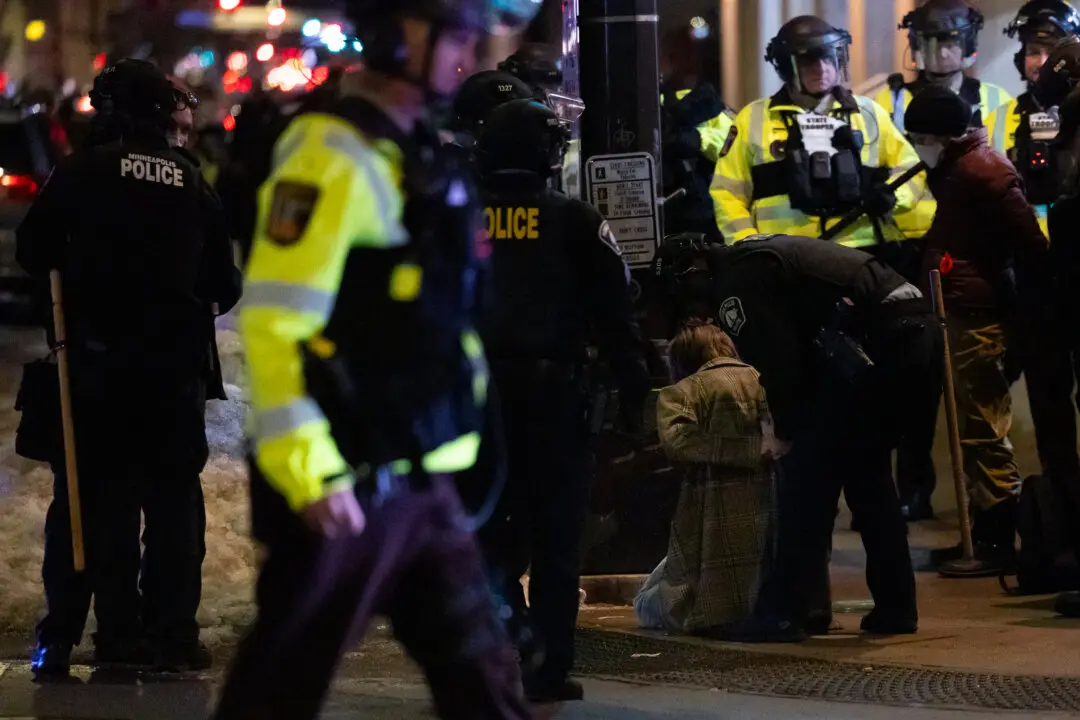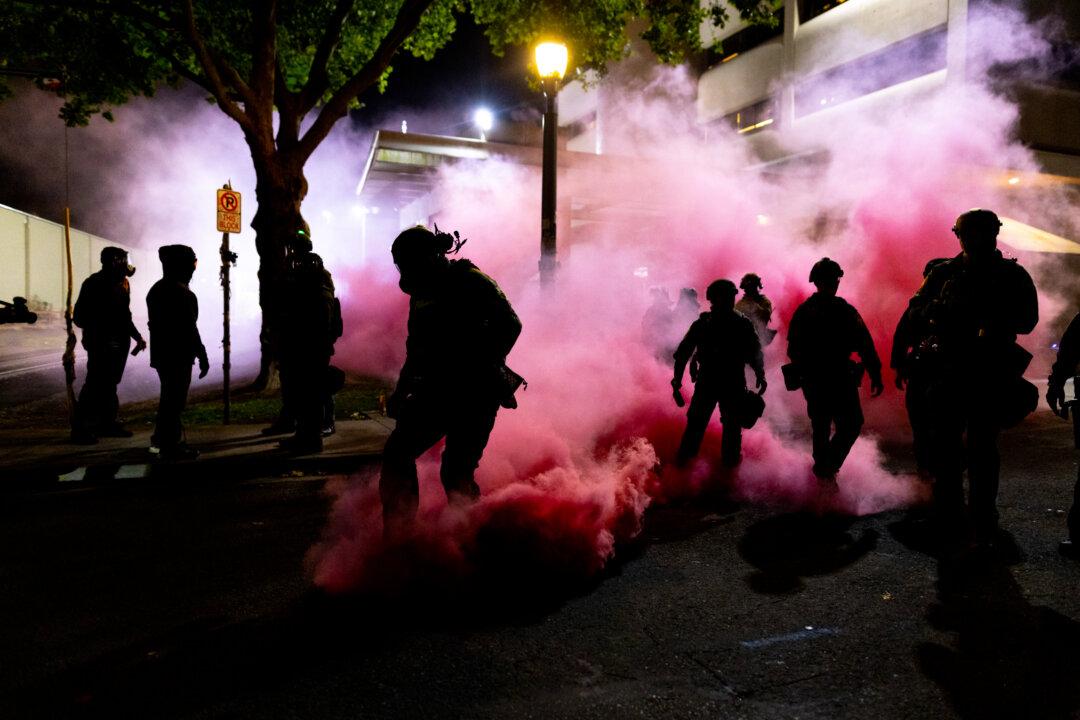TIJUANA, Mexico—Since May, the tent city in the El Chaparral area of Tijuana, Mexico, has been filled with an added population of South American travelers in hopes of seeking a new life across the border in the United States—less than 1,000 feet from where they sleep.
At 10 a.m. on a recent Saturday, a Mariachi band played worship music within the now fenced-off perimeter guarded by municipal and federal Mexican police forces. The air had a stench of portable toilets mixed with smoke coming from late morning meals.




